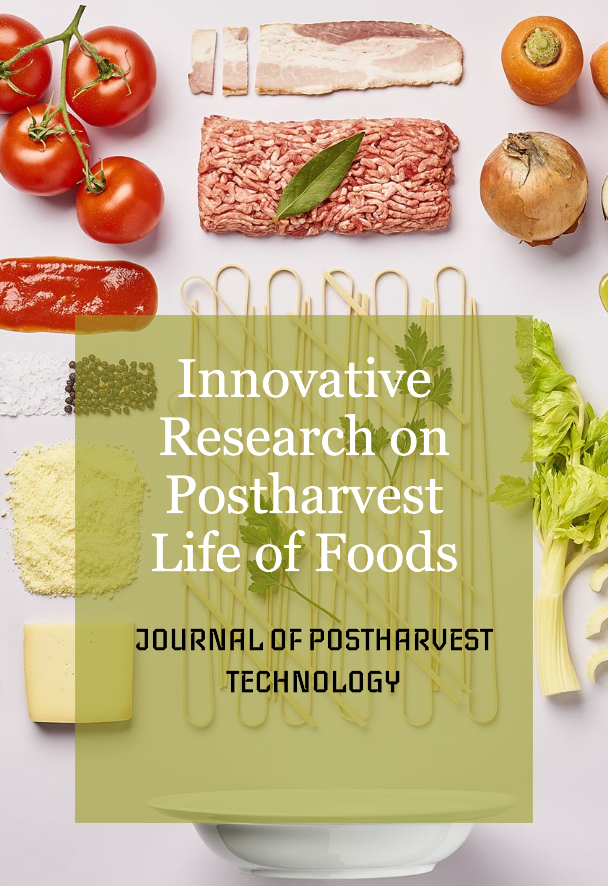Modelling and Simulation of Rotary Dryer for Wheat drying
Keywords:
Air Temperature, Product Moisture, Rotary DryerAbstract
Drying of the agricultural product has been one of most effective methods to reduce postharvest losses. Different studies are conducted to evaluate the performance of a rotary drier for drying of agricultural products. Rotary dryer is capable of processing a variety of agricultural product with a large number of thermo-physical and flow properties. Rotary dryers are used for drying of grains, beans, nuts, vegetables, herbs, woody biomass, animal feeds, agricultural wastes, and by-products. During this paper, a dynamic model to simulate the dehydration process of wheat in a rotary dryer is proposed. The results are validated with the experimental data obtained. The model predicts air and product moisture and temperature depending on operating conditions of the rotary dryer.
References
Abbasfard, H., Rafsanjani,H.H., Ghader, S. and Ghanbari, M. 2013. Mathematical modeling and simulation of an industrial rotary dryer: A case study of ammonium nitrate plant. Journal of Powder Technology, 239: 499–505.
Blahovec J. and Yanniotis S. 2010. Generalised Equation as a Basis for Sorption Spectral Analysis. Czech Journal of Food Science, 28: 345–354
Conghui, G., Xin, Z., Bin, L. and Zhulin, Y. 2014. Steady State Heat And Mass Transfer Flexible Filamentous Particles In A Rotary Dryer. Journal of Powder Technology, 267: 234-239.
Fan, G., Hongli, C., Lin, M., Gang, L., Yimin, L. and Zhulin, Y. 2016. Simulation of Dynamic Transport of Flexible Ribbon Particles In A Rotary Dryer”, Journal of Powder Technology, 297: 115-125.
Guen, L., Huchet, F., Tamagny, P. 2011. Drying Modelling of Granular Flow: Application to the Asphalt Processes. Journal of Applied Fluid Mechanics, 4 (2): 71-80.
Iguaz A., Esnoz, A., Martinez, G., Lopez, A. and P. Virseda P. 2003. Mathematical modelling and simulation for drying process of vegetable wholesale by-products in a rotary dryer. Journal of Food Engineering, 59: 151–160.
Kumar, A., Kulkarni, N. and Kedarnath. Mathematical Modeling of Microwave drying kinetics of Ginger (Zingiber officinale) slices. Journal of Postharvest Technology. 2 (1): 88-95.
Pelegrina, A., M. Elustondo, M. and M. Urbicain,2002. Setting the operating conditions of a vegetables rotary drier by the response surface method, Journal of Food Engineering, 54: 59–62
Rastikian, R., Capart, R. and Benchimol, J. 1991. Modelling of sugar drying in a countercurrent cascading rotary dryer from stationary profiles of temperature and moisture. Journal of Food Engineering, 41: 193-201.
Silva, M.G., Lira, T.S., Arruda, E.B., Murata, V. V. and Barrozo, M. A. S. 2012. Modelling of Fertilizer Drying In A Rotary Dryer: Parametric Sensitivity Analysis. Brazilian Journal of Chemical Engineering, 29: 359 - 369.
Silva, P.B., Duarte, C.R., Barrozo, M.A.S. 2015. Dehydration of Acerola Residue in a New Designed Rotary Dryer: Effect of Process Variables on Main Bioactive Compounds. Food and Bio-products Processing, 98: 62-70.




